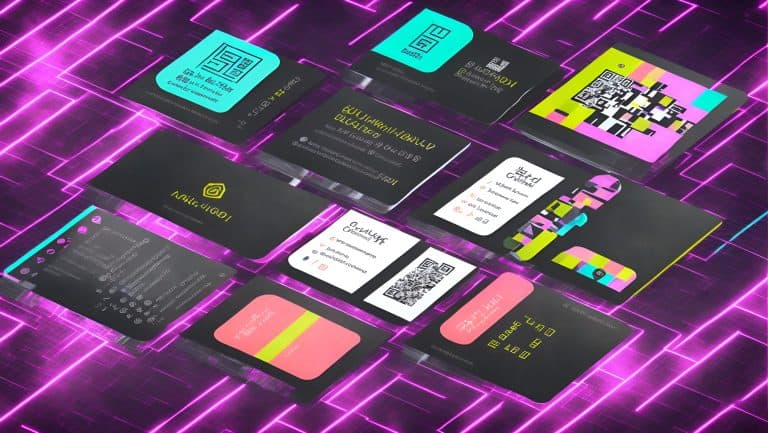Effortlessly Manage Your Meetings with These 9 Top AI Note-Taking Apps
As more and more people are working remotely and attending virtual meetings, note-taking has become a vital task…
Digital business cards are electronic versions of traditional paper business cards. They leverage digital platforms to store and share contact information seamlessly. Here’s a breakdown of their various aspects and functionalities:
Name and Title: Basic identifiers like full name and job title.
Company Details: Company name, logo, and address.
Contact Details: Phone numbers, email addresses, and physical addresses.
Digital Features
QR Codes: Enable quick sharing by scanning with a smartphone.
Social Media Links: Direct links to LinkedIn, Twitter, Facebook, and other social platforms.
Web Links: URLs to personal or company websites, blogs, and portfolios.
Multimedia: Profile pictures, logos, and even videos. NFC and ncs digital cards with your contacts list.
Benefits
Convenience
Easy Sharing: Share via email, text, or QR code scan.
Accessibility: Access your card from any device with internet connectivity.
Eco-Friendly
Reduces Paper Waste: Digital format eliminates the need for physical cards.
Sustainable: Helps in reducing the carbon footprint associated with printing.
Up-to-Date Information
Instant Updates: Change your contact details without reprinting cards.
Real-Time Syncing: Sync updated information with recipients automatically.
Networking Events
Conferences and Trade Shows: Efficiently exchange contact details with multiple people.
Meetings and Appointments: Share your information instantly during interactions.
Remote Interactions
Virtual Meetings: Share your card via video conferencing platforms.
Online Profiles: Include links to your digital business card in email signatures and online profiles.
Implementation Tips
Design and Customization
Professional Layout: Ensure the design reflects your brand’s identity.
Clear Information: Prioritize readability and easy access to key information.
Interactive Elements: Use QR codes and clickable links for better engagement.
Security and Privacy
Data Protection: Use platforms that offer data encryption.
Privacy Controls: Choose apps that allow you to control what information is shared
Compatibility
Cross-Platform Functionality: Ensure your digital business card works across different devices and operating systems.
Integration with Other Tools: Sync your card with contact management and CRM systems.
Future Trends
Augmented Reality (AR)
Interactive Features: AR can provide immersive experiences by displaying information when a card is scanned.
Enhanced Networking: Allows users to see additional context, like recent projects or mutual connections.
Blockchain Technology
Enhanced Security: Blockchain can secure data sharing and verify the authenticity of business cards.
Digital Identity Management: Provides a secure way to manage and share professional identity information.
Digital business cards represent a modern, efficient, and eco-friendly approach to networking. They integrate seamlessly with digital lifestyles and offer a versatile tool for professionals in various fields.

As more and more people are working remotely and attending virtual meetings, note-taking has become a vital task…

In the contemporary business landscape, the adoption of robust business analytics tools is no longer a luxury but…

Are you tired of handing out bland business cards that get tossed in the trash as soon as…

Have you ever heard of a Dot Business Card? It’s the modern take on traditional business cards, and…